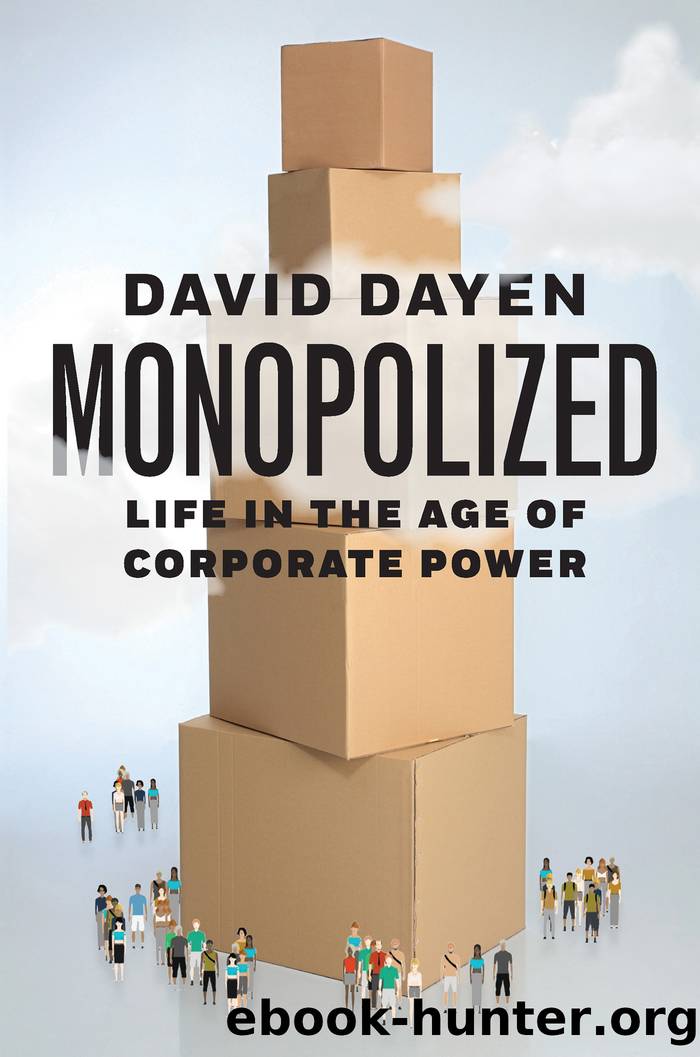Monopolized by David Dayen

Author:David Dayen
Language: eng
Format: epub
Publisher: The New Press
Published: 2020-07-14T16:00:00+00:00
Bags of saline, which have been available for commercial use since 1931, typically cost around a dollar for hospitals, and they use them incessantly. Hanging an IV is typically the first action nurses take when dealing with a sick patient. Baxter, the leading producer, ships over a million units every day. That requires constant manufacturing of a low-margin product. The FDA’s drug shortage database first posted a shortage in IV saline solution in January 2014. Bags of dextrose—sugar and water—have also been in chronically short supply. The United States was actually importing saline IV bags—which, as I’ve mentioned so much that you’re mad at me, is salt and water in a bag—from Spain, Norway, and Germany. And of course the shortages were leading manufacturers to raise the price as much as five-and six-fold. “We’re not supposed to have shortages in a market economy,” said Phil Zweig.
Some chalked up the lack of saline to an increase in demand, especially around flu season (which creates lots of need to replenish fluids). But the simple fact remains that three companies—Baxter, ICU Medical, and B. Braun—make around 86 percent of the nation’s saline solution. And any problems, whether a recall or a manufacturing plant closure, can reduce the already tight supply. ICU’s saline division, at the time known as Hospira, recalled an entire lot in 2015 after finding one human hair in one bag. Other findings of particulate matter have shut down plants, and even routine maintenance disturbs supply.
Clearly, producing a medical product that will be injected into human veins must be 100 percent sterile, and made to exacting specifications. There are hundreds of regulatory checks, which manufacturers of course complain about. But there’s a bigger problem here. Each company producing saline contracts it to hospitals through a GPO. And the GPOs do not allow a second supplier to step in when a manufacturer runs into trouble. So hospitals don’t really have three sources of saline; they have one.
Indeed, as Zweig explained in the Wall Street Journal in 2018, market-leading GPO Vizient has held an “extended single source award for IV solutions” with Baxter since 2007, when the GPO was still called Novation. Any hospital using Vizient has no other opportunity to find saline if Baxter runs into a supply problem. Moreover, new suppliers of saline don’t pop up anyway, not only because of the barriers to entry but also because GPOs eat away at already thin margins. Plus, the high fees companies like Baxter pay to secure GPO contracts make it more difficult for them to invest in building new plants to make more saline.
There are also allegations of straight-up anticompetitive conduct. Months before the hurricanes in Puerto Rico, the Justice Department began investigating Baxter for antitrust violations, related to whether it colluded with other producers to artificially create saline IV supply shortages, in order to demand higher prices. A federal grand jury had been impaneled in Pennsylvania, and hospitals weren’t waiting for the outcome, suing Baxter and ICU over collusion. Separately, the
Download
This site does not store any files on its server. We only index and link to content provided by other sites. Please contact the content providers to delete copyright contents if any and email us, we'll remove relevant links or contents immediately.
The Secret History by Donna Tartt(16606)
The Social Justice Warrior Handbook by Lisa De Pasquale(11485)
Thirteen Reasons Why by Jay Asher(7780)
This Is How You Lose Her by Junot Diaz(5753)
Weapons of Math Destruction by Cathy O'Neil(5029)
Zero to One by Peter Thiel(4816)
The Myth of the Strong Leader by Archie Brown(4785)
Promise Me, Dad by Joe Biden(4440)
Stone's Rules by Roger Stone(4412)
Beartown by Fredrik Backman(4403)
How Democracies Die by Steven Levitsky & Daniel Ziblatt(4392)
The Fire Next Time by James Baldwin(4336)
100 Deadly Skills by Clint Emerson(4070)
A Higher Loyalty: Truth, Lies, and Leadership by James Comey(4024)
Rise and Kill First by Ronen Bergman(4008)
The David Icke Guide to the Global Conspiracy (and how to end it) by David Icke(3875)
The Farm by Tom Rob Smith(3869)
Secrecy World by Jake Bernstein(3773)
The Doomsday Machine by Daniel Ellsberg(3725)
